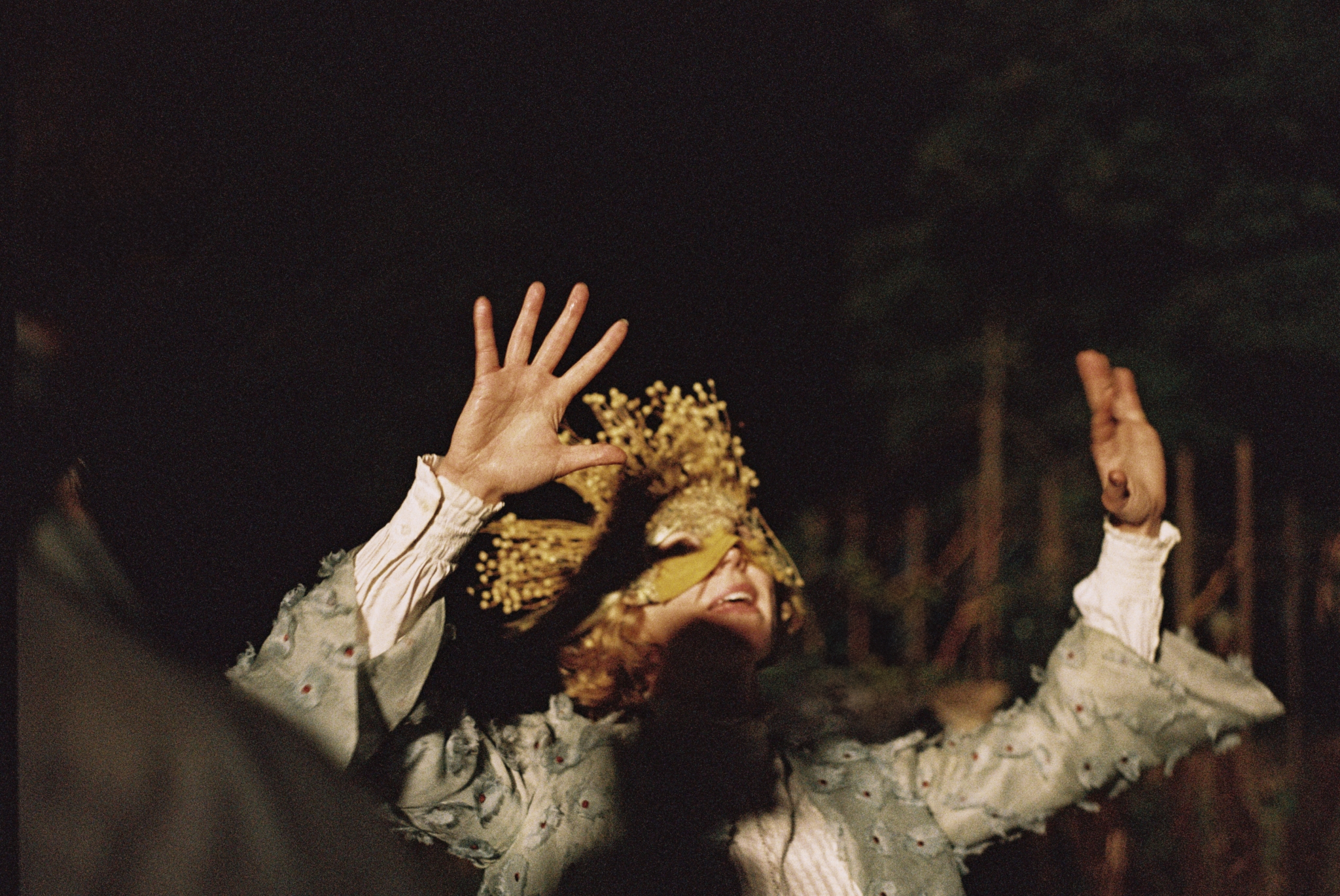
Writer Rafa Sales Ross journeys to Oban, Scotland to talk to stars Caleb Landry Jones, Harry Melling, and Rosy McEwen on the set of director Athina Rachel Tsangari’s acclaimed new feature.
It took six hours, but the water finally managed to crack into my cheap knock-off combat boots. I’d been waddling in mud from the time the sun crept back behind the expansive country fields to deep within the night as rain fell mercilessly upon the ever-drenched ground where plastic tents held for dear life. It was late September 2023, a few miles away from the centre of Oban, where a once plain meadow had been turned into a medieval village for the shooting of Athina Rachel Tsangari’s Harvest.
Earlier on what would be a very, very long day, I found myself on the 8.35 train from Aberdeen to Oban, a seven-hour journey across the serpentine coast of Scotland. With me, the Jim Crace novel that inspired Tsangari’s latest, an atmospheric tale of betrayal and great change set in a remote English village at a time when the greedy hands of modernity come to gnaw at the lulling rhythms of pastoral traditions. There, outsider Walter Thirsk executes the commands of Master Kent, two widowers whose memories of a boyhood shared in camaraderie sustain the flimsier dynamics of their adult lives.
The producers had carefully chosen when to invite me into their highly secretive project: it was a special day on set, a night shoot that consisted of a pivotal dinner scene and an extravagant ritual by a great fire. It was also the day Crace visited his literary world made real, and I walked quietly behind him as his fingers touched crooked doorways and all imposing wooden looms. “Is it just as you imagined?” asked one of the production assistants of the author and his wife. “I don’t know what I imagined,” he said. “But this is beautiful.”
Left to roam before the cast arrived, I walked in and out of the small medieval houses, feeling the last sliver of cynicism drained from my body as I took in the wonder of every detail nested in the dusty nooks and crannies of the village. Chamber pots half full, candles half burned, meals half eaten — but everything created and envisioned in almost magical fullness. To my left, a burnt church; to my right, a creaking water mill. Water and fire and earth, all enveloped by the thick mist of the Scottish autumn.
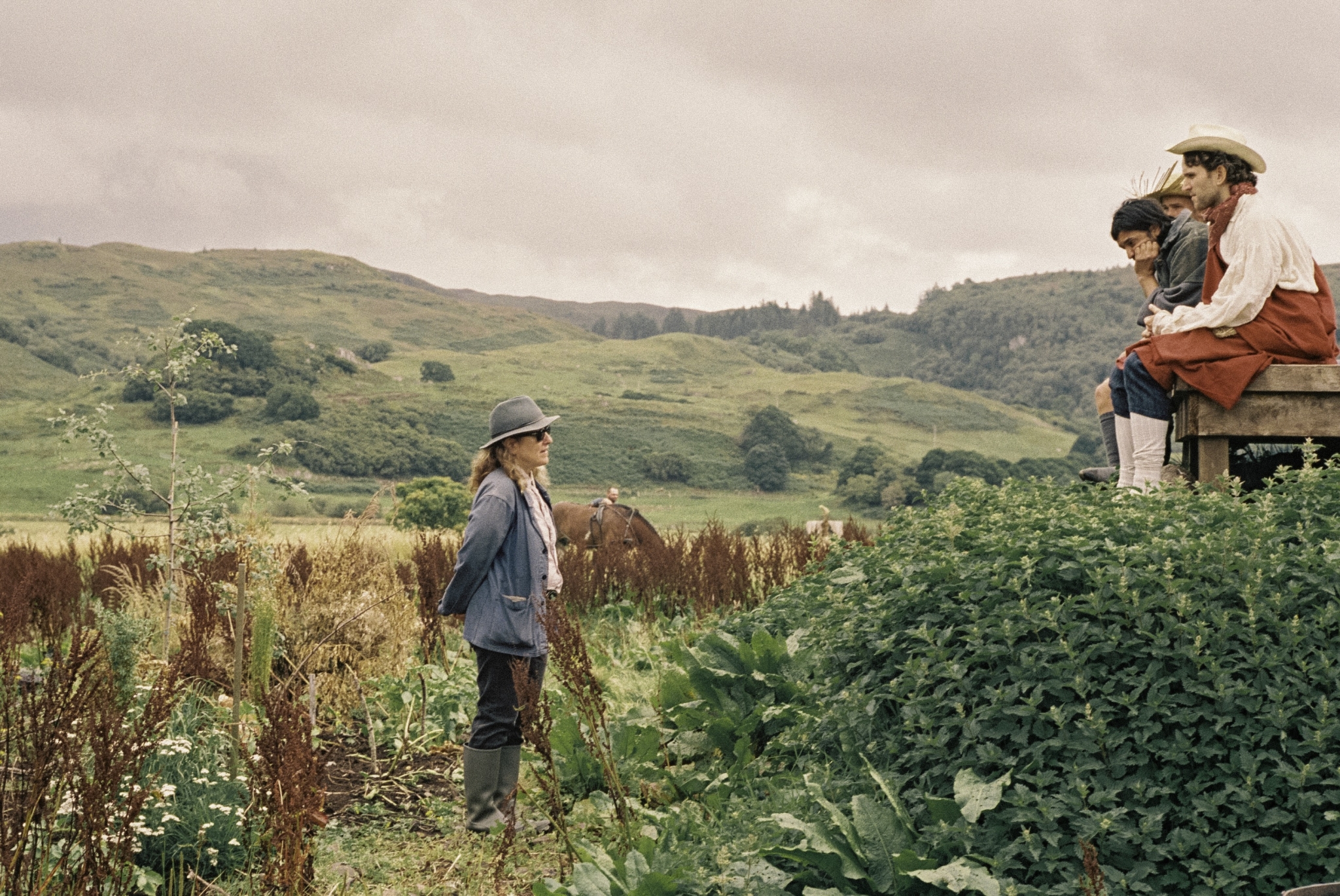
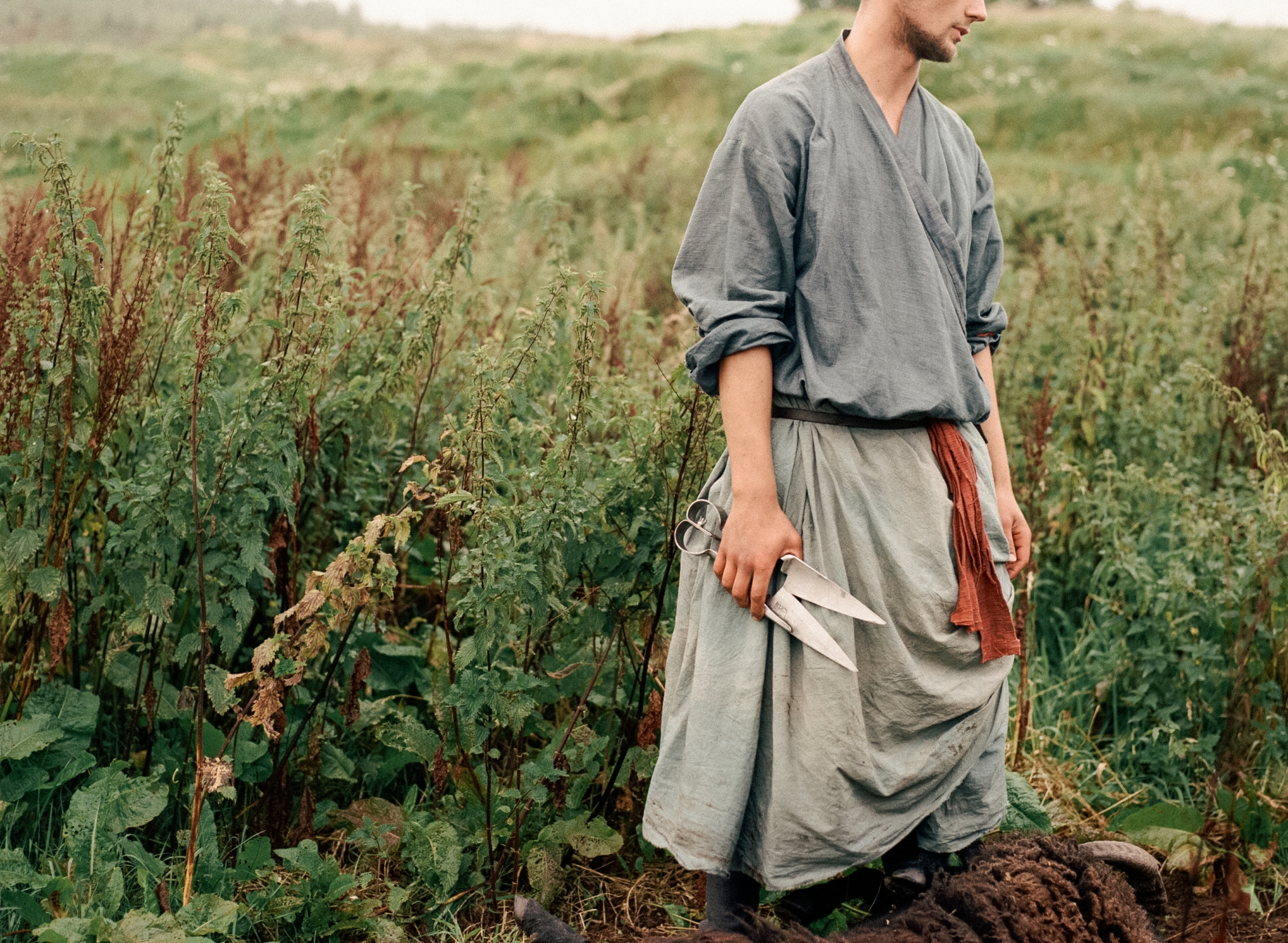
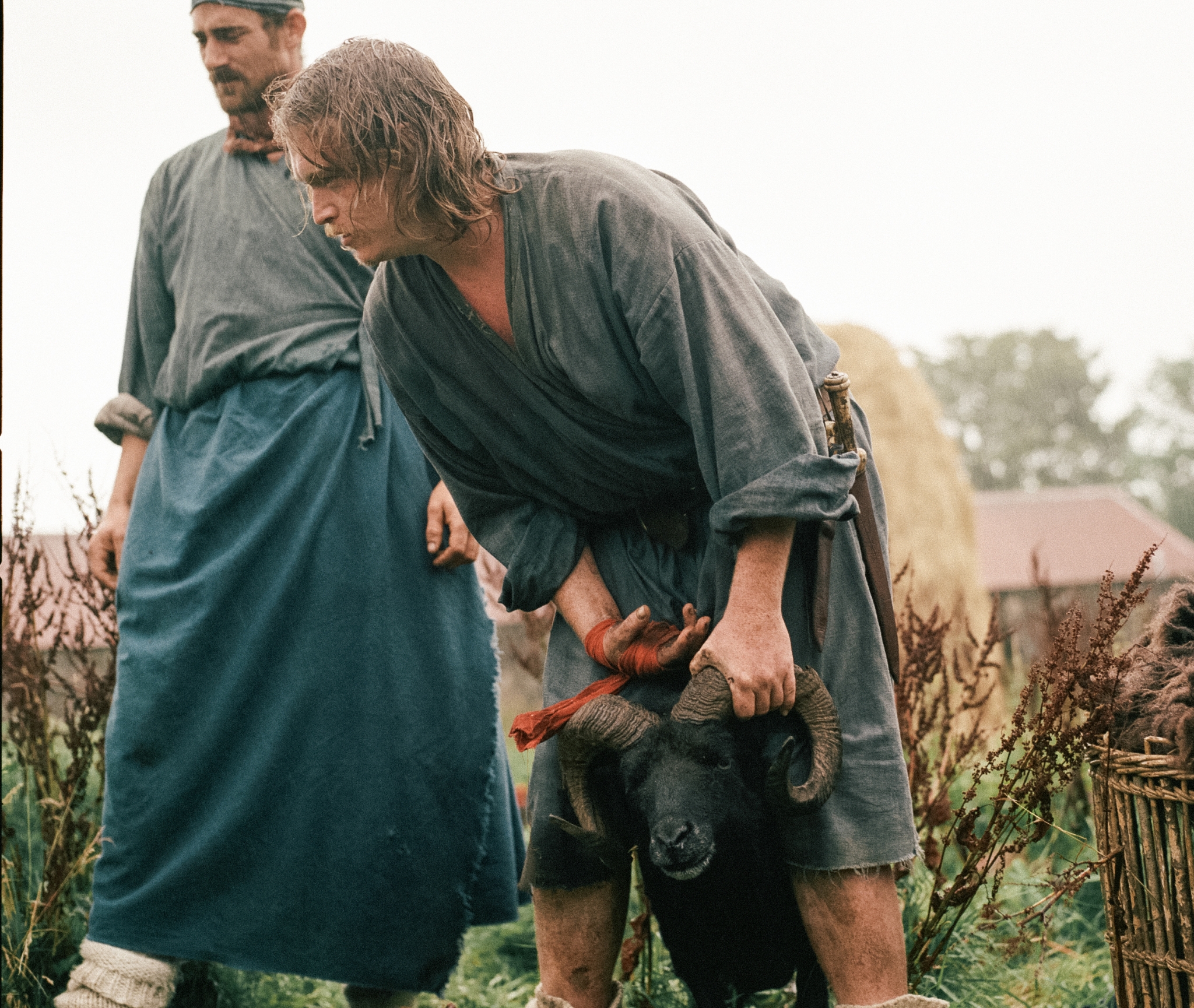
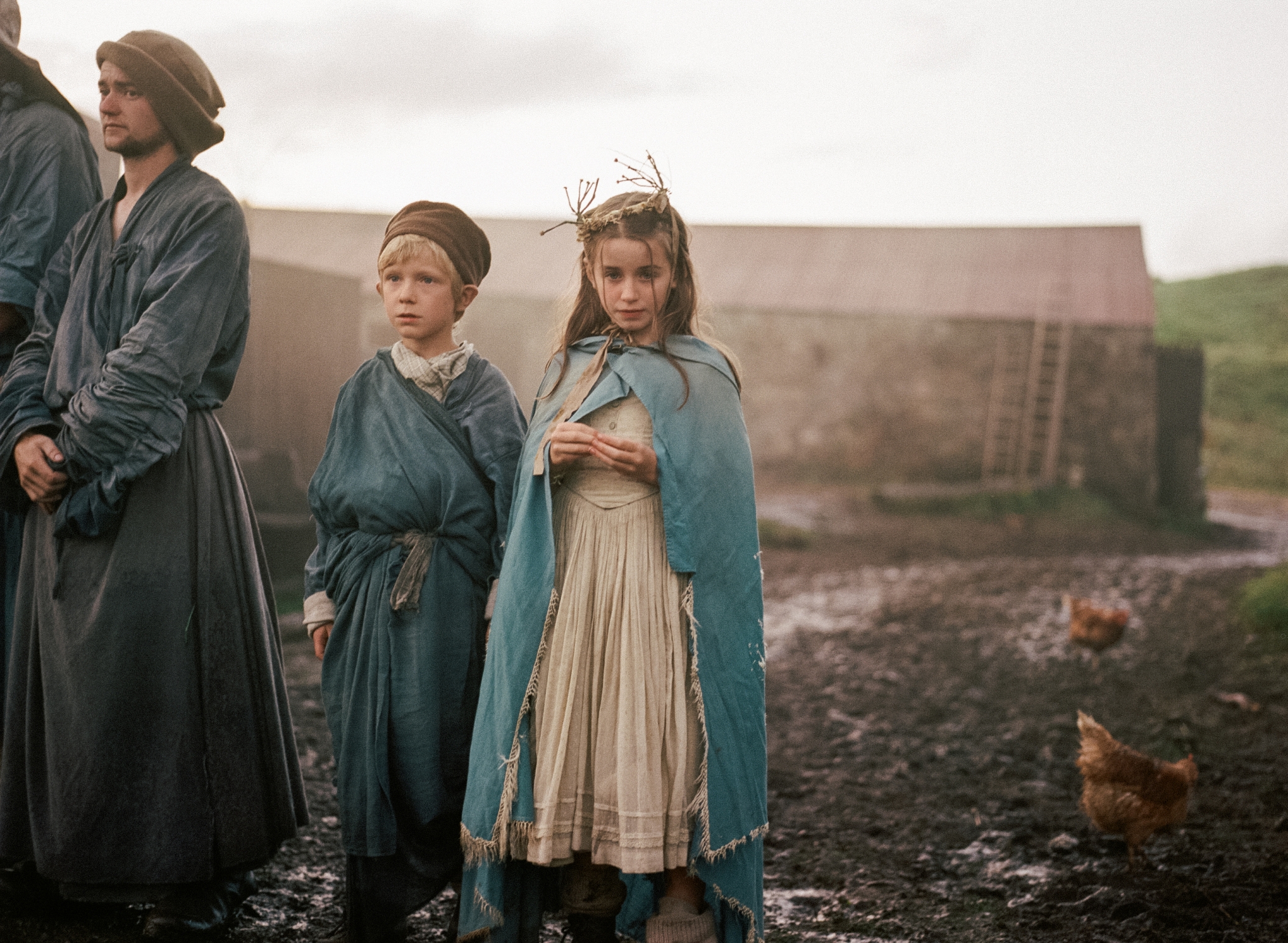
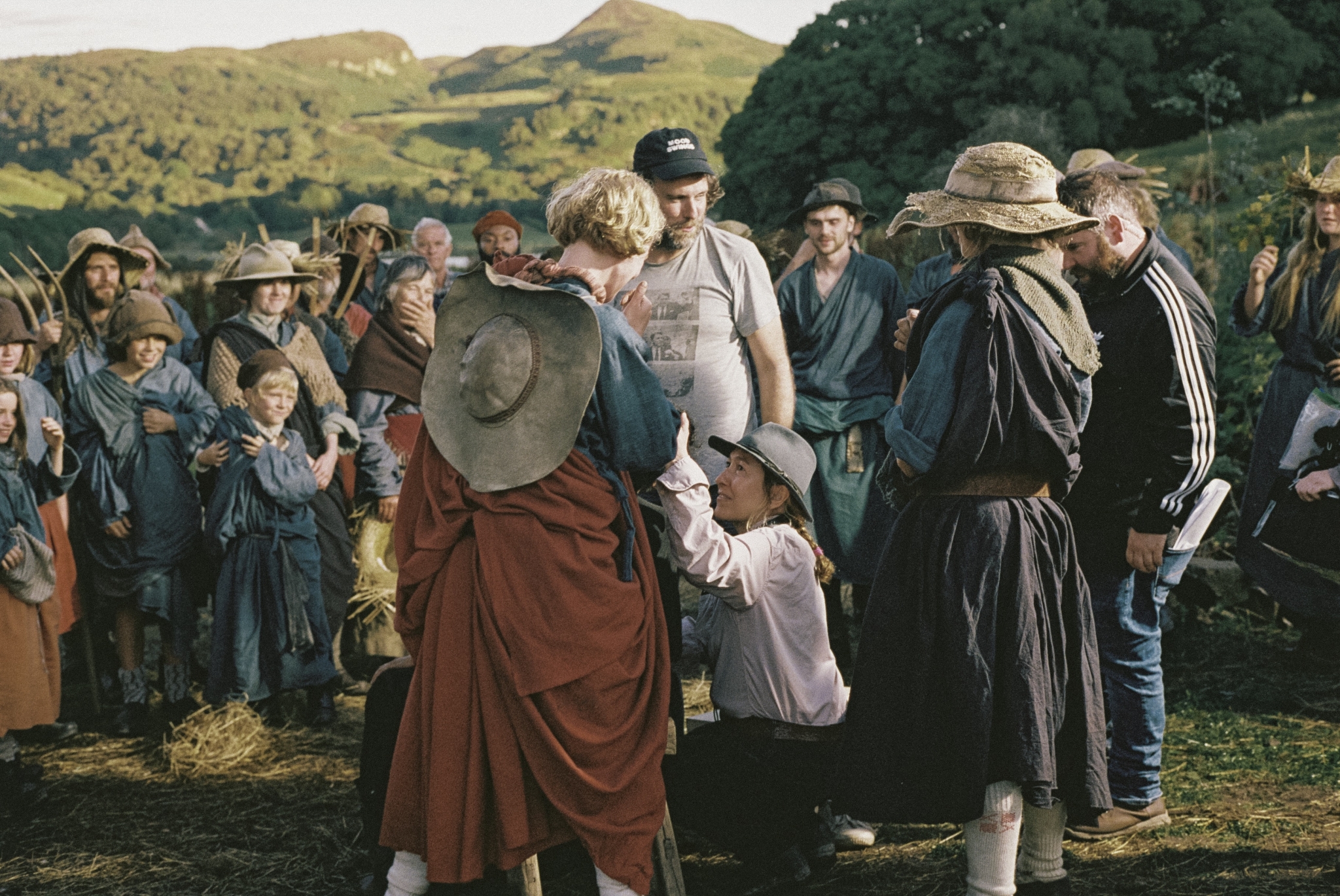
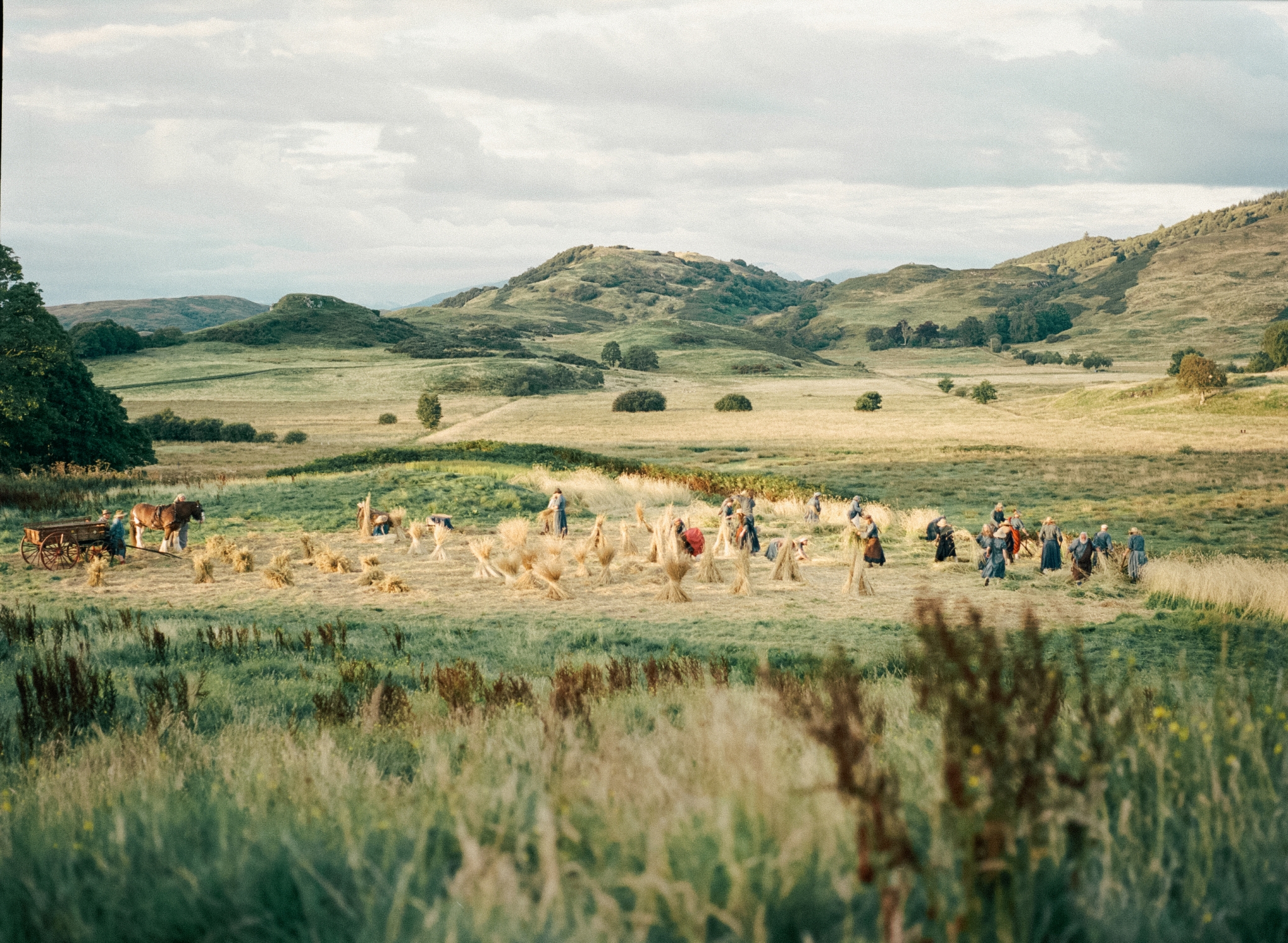
But the same weather that would cast a spell over my all-too-impressed self would come to betray me, for from the moment the first supporting cast member stepped on set, so did the downpour. Cinematographer Sean Price Williams put his water jacket on, and crew members swapped sneakers for knee-high wellies. I, donning a terribly impractical jumpsuit and a £4 poncho, braced for impact.
My first contact with Harvest happened a few weeks earlier in the unlikely shape of the press conference for Luc Besson’s Dogman at the Venice Film Festival. I was typing away at the press lounge next door, headphones in, when a friend nudged me on the shoulder and pointed to the television broadcasting the presser: “Why does Caleb Landry Jones have a Scottish accent?” he asked yours truly, the Brazilian from sunny Rio transplanted to grey Aberdeen. And it was true. The Texan who won Best Actor in Cannes for his chilling embodiment of an Australian spree murderer in Justin Kurzel’s Nitram was pulling the “L” at the end of “film”: “It will be better at the end of the fill-um,” he said, mocking his still clunky drawl.
So naturally, I was burning with curiosity to see Jones on set, drawn by his accent but also by his method. When he arrived, matted red hair wild, and a long body draped in burlap-looking fabric, a young producer tried to introduce me. But there was no Jones there, only Walter Thirsk, and Walter Thirsk wanted nothing to do with this nosy journalist meddling in his intense, tight-knit community.
“I’m so sorry,” Jones tells me months later, following the UK premiere of Harvest at the London Film Festival. The posh hotel could not be further away from the mud-covered set where we first met, a distance that also separated the man in front of me from the one I saw lift bales of hay on a wet day in Oban the year before. “I just remember it really not being a good time to talk,” he adds, apologizing once again. “I get it,” I reassure him more than once. “The last thing an actor wants is a journalist on set.”
“No, no,” he cuts me off gently. “I think it’s wonderful because you guys can come away with a perspective that is independent from someone who was on set. I just found it hard to find the time in the middle of everything.”
And time is a recurring theme in our conversation, with the actor recalling the “luxury” of being able to travel to Scotland weeks before the shooting of Harvest began. “The first thing I did when I got to Scotland was buy a pair of boots and a rain jacket. Once I learned where we were shooting, I went up there on my own. I remember that pretty vividly, walking into the area and making my first fire in the house, spending the night, waking up and hearing the birds and the wind and rain at night on the tin roofs.”
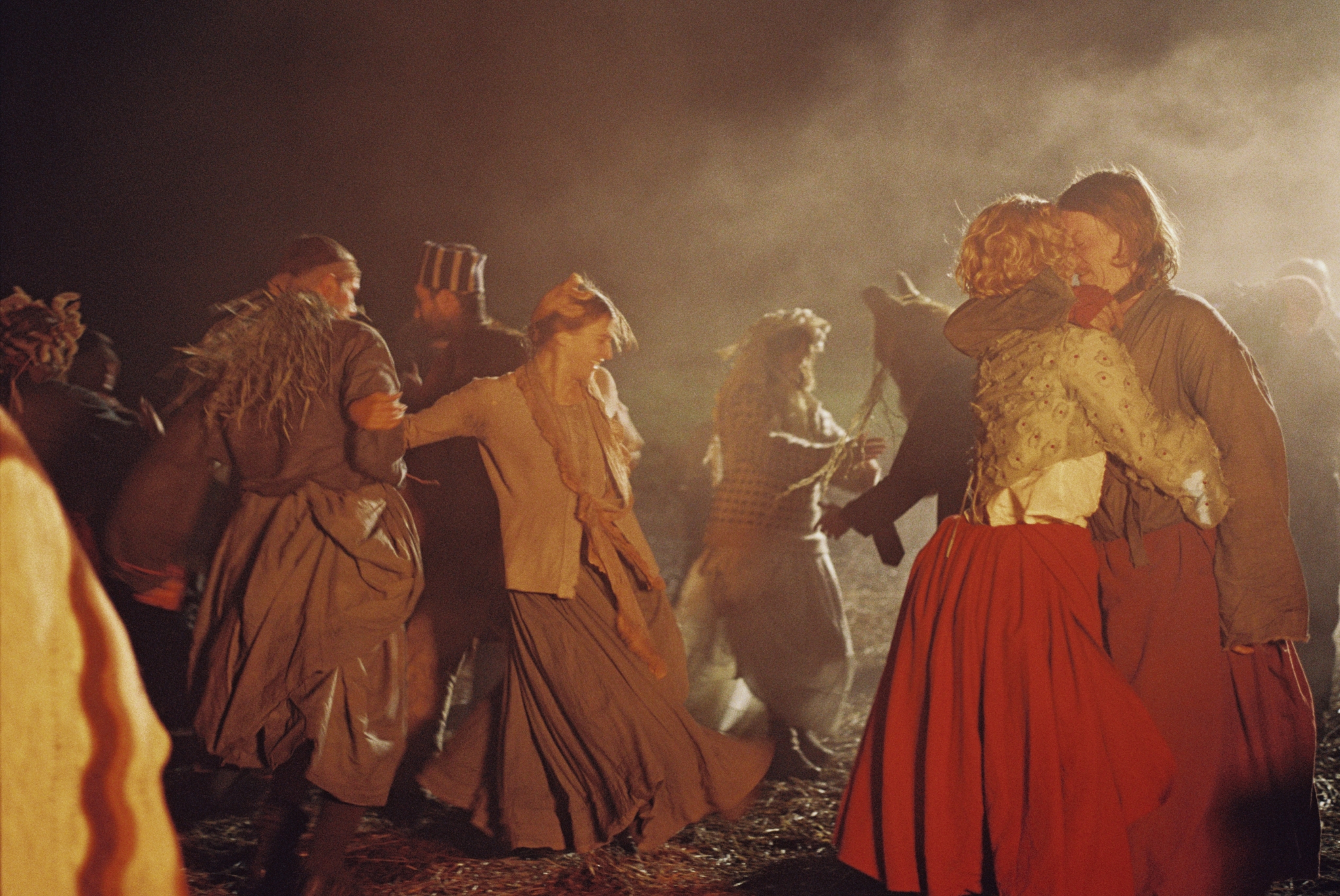
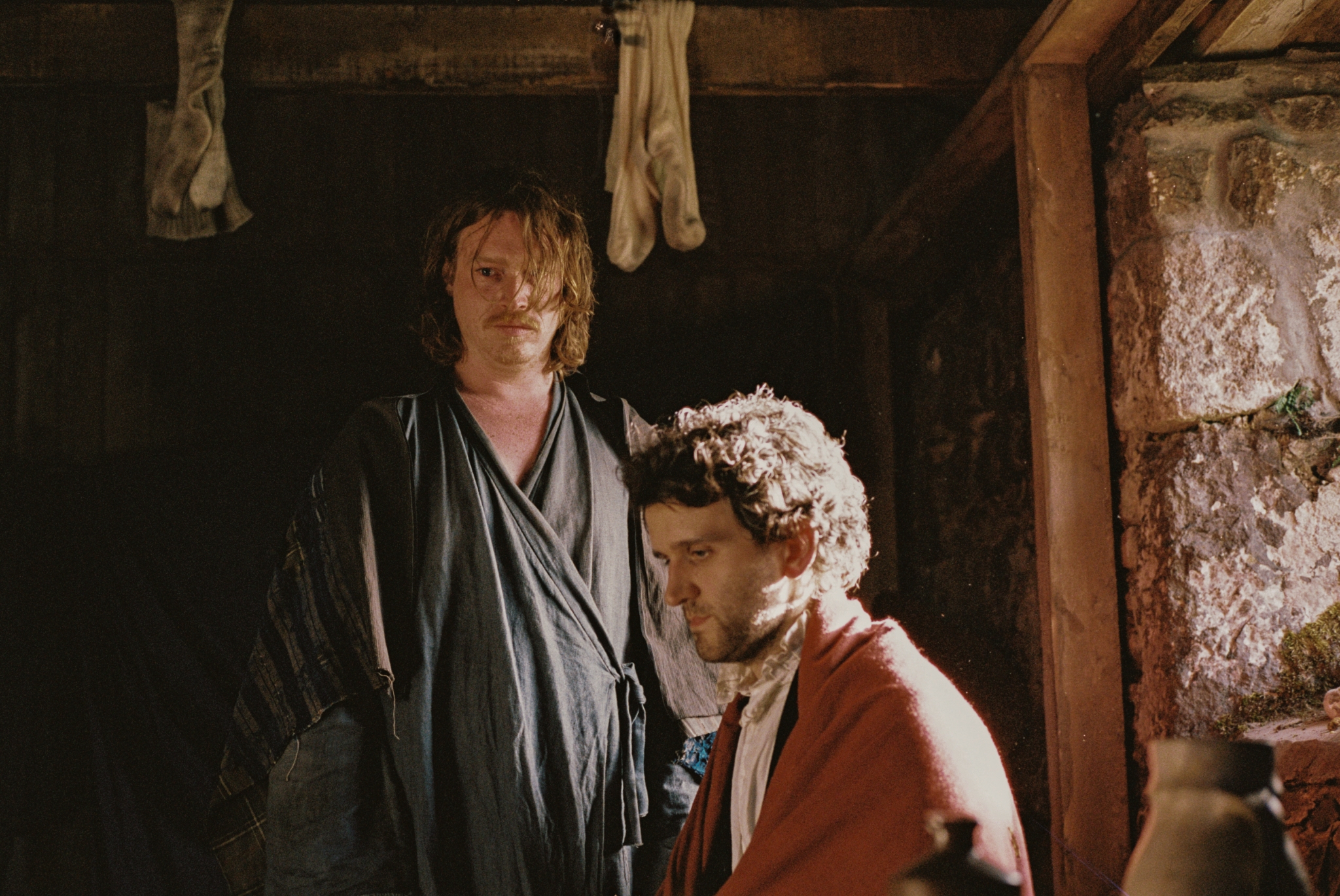
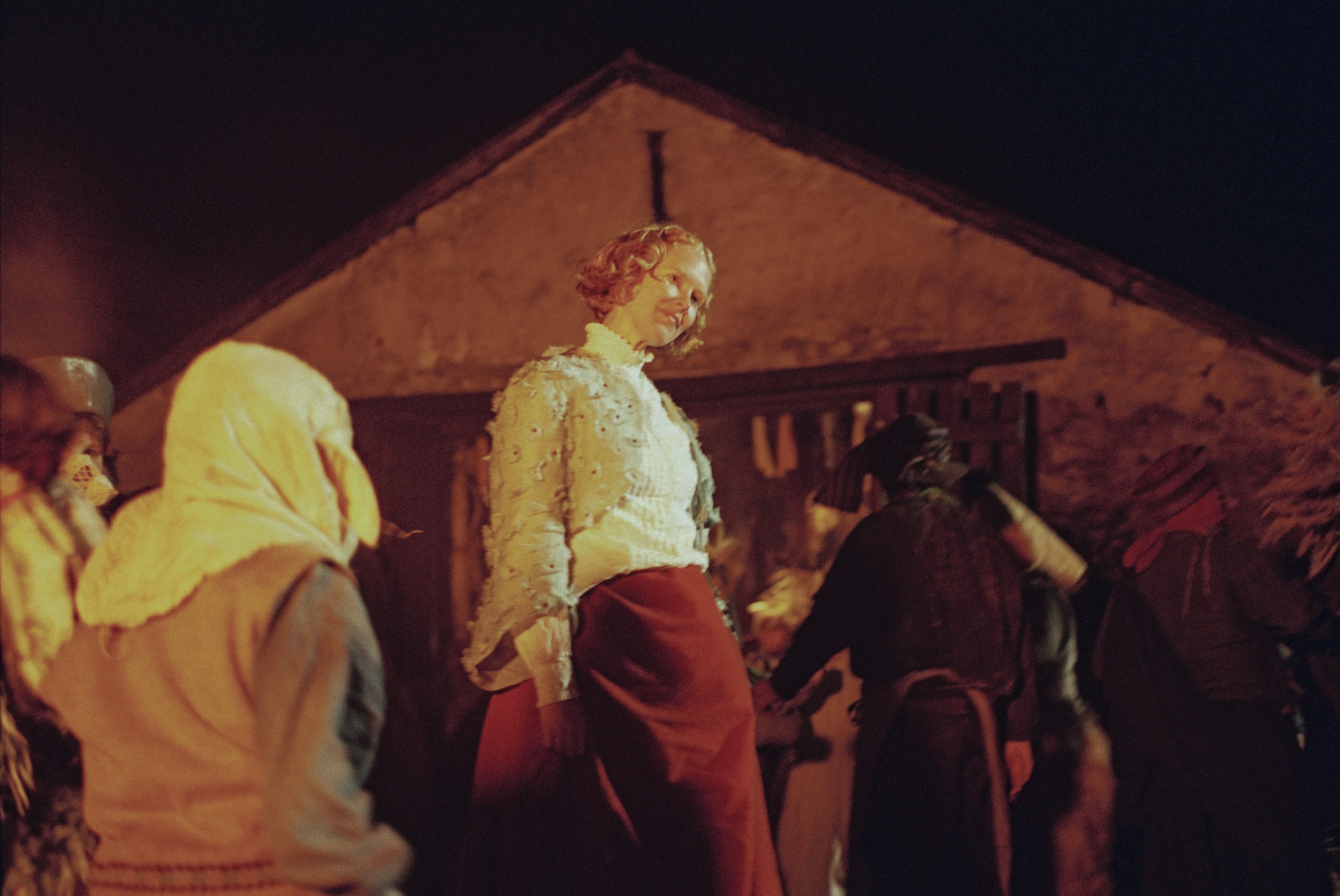
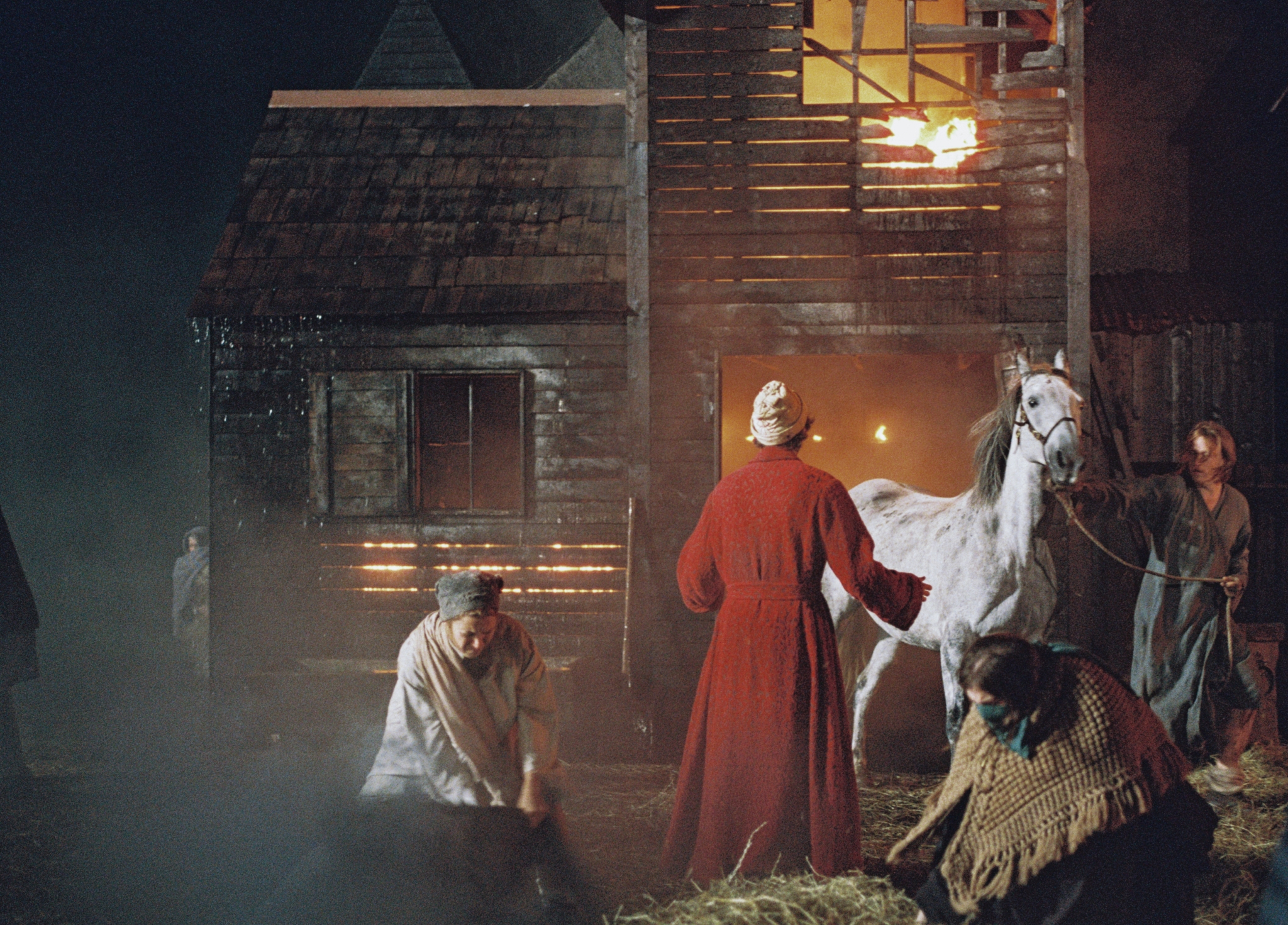
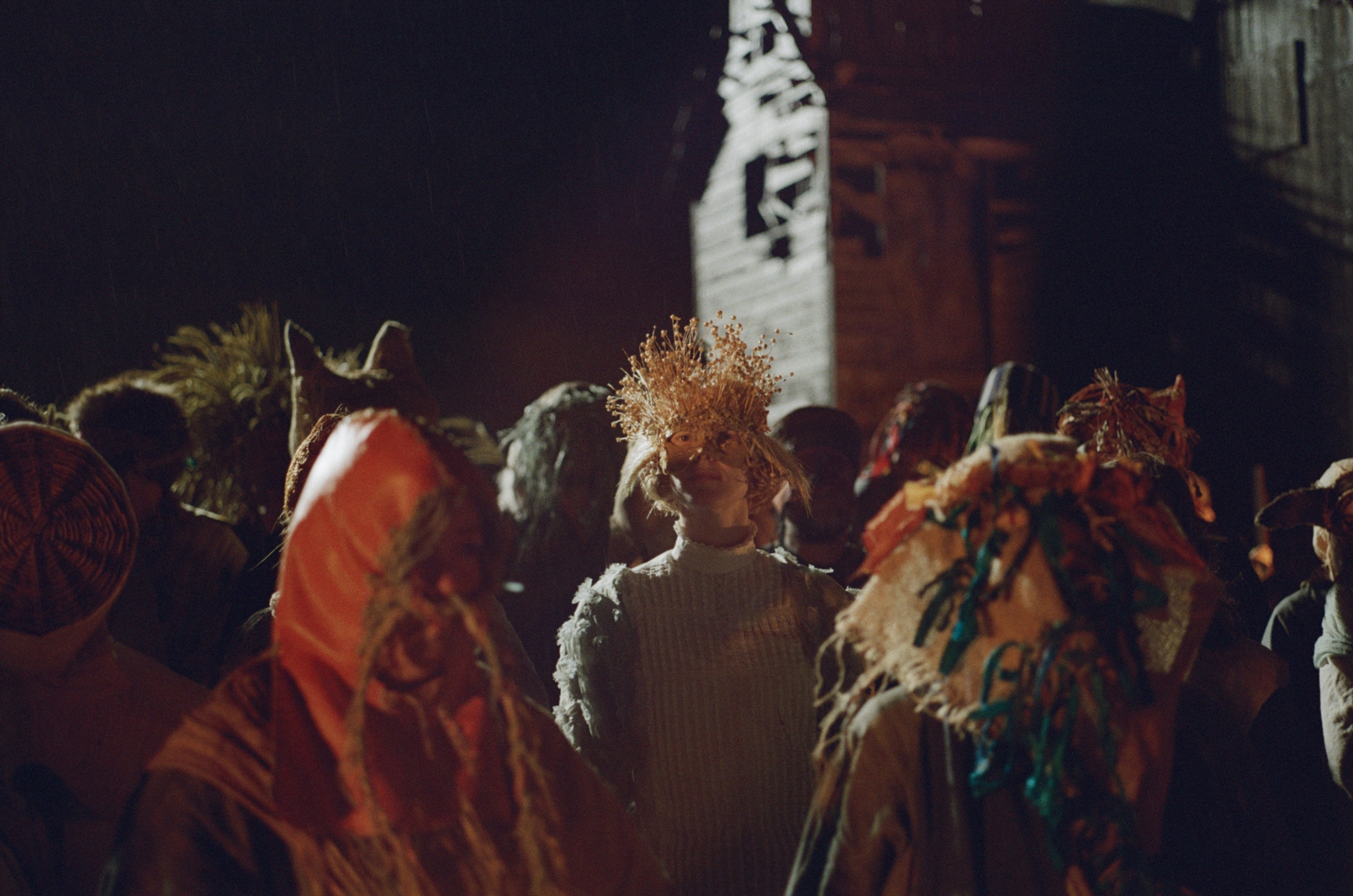
“To me, this movie was always going to be about touch and smells,” he goes on, adding that, while the memories of those first days were mostly romantic, he quickly realised he was “completely out of his depth.” “The land and the environment showed me very fast that I was not sturdy, which is what Athina wanted me to be. I was trying to lose some weight, which didn’t end up working. In the end, it was more about seeing yourself in that space and trying to build the body and the mind up as much as possible.”
Despite loving those weeks on his own leading up to principal photography, Jones emphasises that what he cherishes the most about the making of Harvest is the sense of community established on set, one he hadn’t “quite experienced” before. Tsangari heavily involved Oban locals, having them in front and behind the camera as extras and runners, with everyone living closely together during production. Before shooting began, producers organised a small ceilidh in the community hub, where Jones joined fellow cast members Harry Melling, Rosy McEwen, and Arinzé Kene in twirling around with townsfolk.
“Athina was very much like a witch in the way she puts us together,” says Jones. “It feels like the days are filled with serendipitous moments and sometimes you find yourself in a bit of a trance, in a way.”
“We’ve made this film very much alongside the people of Oban,” echoes Melling as we cosy up inside his tent on set, a rare refuge from the rain. “The locals are integrated into the film in ways you don’t often find on sets. Usually, it can be far more segregated in terms of actors and supporting artists, but this very much feels like we’ve been trying to create this world and are using people who are from it.”
The soft-spoken Melling went through his intense dinner speech several times that evening, cast and crew waddled together inside the makeshift barn as water ran around them as a furious river. “It’s been eventful,” he says with a smile, guiding my eyes through his soaked costumes as they lay on his side in the tent. It’s 1 AM, and everyone briefly stopped for a packed dinner and a few, much-needed moments of dry respite. I have a cold pasta salad with fresh tomatoes and a lovely little vanilla cake, in case you’re curious.
“The land and the environment showed me very fast that I was not sturdy, which is what Athina wanted me to be. I was trying to lose some weight, which didn’t end up working. In the end, it was more about seeing yourself in that space and trying to build the body and the mind up as much as possible.”
Caleb Landry Jones

On the set of Harvest (2024, dir. Athina Rachel Tsangari). By Jaclyn Martinez.
“I just loved the script,” he recalls of first being offered the role. “I thought it was extraordinary and so vivid and colorful and wild and chaotic and rich. Then I met Athina and thought she was someone who had a real vision for what this is. We started playing with ideas of who Kent might be, pushing him to extremes, which is something that, for better or for worse, I like doing. I just adored the part and the opportunity of working in such a collaborative way.”
It worked similarly for McEwen, who shot Harvest soon after her breakout role as the titular character in Georgia Oakley’s Blue Jean. “I got sent through the script by my agent and saw Caleb’s name on the email and went, ‘Oh, I love him. I am such a fan of his.’ Then I watched some of Athina’s work, and it’s so different and odd and honest. We had a meeting, she was drinking some white wine and smoking a pink cigarette, and I completely fell in love with her.”
“With the setup, we can’t help but be a village,” she tells me of the set dynamics. “We are all living together, we eat together every day. The actors aren’t separated from the non-actors. Last night we were filming until 5 AM, shooting a dance sequence, when it started to rain. All the women in this dance ended up falling to the floor and rolling around in the mud. I hadn’t anticipated how wet it was going to be, and it ended up being the most liberating, crazy experience getting down on my knees, rubbing the mud all over, bashing my chest… I woke up this morning feeling like I had an embarrassing drunken night out.”
Much like McEwen, I wake up the next day around 1 PM feeling like I had emerged from a liver-denting bender. The production car brought me back to my hotel around 7 AM, almost a full 24 hours since I left Aberdeen towards Oban the day before, although days had started to lose their shape at that point. Eyes half-open, I glance at my phone. All trains are canceled. Exhaustion running through my bones, I begin to believe it was all a dream, but the mud keeping my boots from zipping up swiftly brings me back to reality. I was there.
Harvest will hit cinemas across the UK and Ireland on 18 July, courtesy of MUBI.





